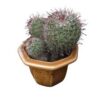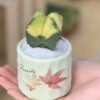Nutritional Foods from Traditional Chinese Medicine (TCM) to Boost Health

Traditional Chinese Medicine (TCM) is a holistic system of health that has been practiced for thousands of years. It is built upon the idea of balancing the body’s vital energy, known as Qi, and ensuring the harmonious flow of energy between the body and the natural world. One of the key components of TCM is food therapy, which emphasizes the consumption of specific foods and herbs to maintain and improve health. These foods are often considered to have medicinal properties that promote well-being, prevent illness, and enhance longevity.
In TCM, it is believed that food can be a form of medicine, and different foods are chosen based on their energetic qualities and the specific health needs of an individual. These foods work to balance the body’s Yin and Yang, strengthen internal organs, improve circulation, and support the immune system. In this article, we will explore some of the most beneficial foods in TCM, how they are used to improve health, and how you can incorporate them into your diet for maximum health benefits.
1. The Concept of Food as Medicine in TCM
In TCM, the idea that “food is medicine” is foundational. According to this philosophy, foods are categorized based on their taste, temperature, and their effect on the body’s organs and systems.
- Taste: Foods in TCM are classified into five basic tastes—sweet, sour, bitter, salty, and pungent. Each taste has a specific influence on the body. For example, sweet foods are thought to nourish and stabilize, sour foods are believed to improve digestion, and bitter foods help clear heat from the body.
- Temperature: Foods are also categorized by their temperature properties, such as hot, warm, neutral, cool, and cold. Hot foods are used to counteract cold conditions in the body, while cool foods help soothe heat-related ailments.
- Organ Systems: Each food is associated with one or more of the body’s vital organs, such as the liver, lungs, kidneys, heart, and spleen. Foods can strengthen, tonify, or harmonize the function of these organs, supporting overall health and vitality.
By carefully selecting foods according to these principles, TCM seeks to address the root cause of health issues, rather than simply masking symptoms. With this approach, the goal is to prevent illness, promote longevity, and improve the body’s natural healing abilities.
2. Common TCM Foods for Health Enhancement
Below are some of the most popular and beneficial foods used in Traditional Chinese Medicine for promoting health and longevity.
1. Goji Berries (Lycium barbarum)
Goji berries are one of the most revered superfoods in TCM, often used to improve vision, boost the immune system, and nourish the blood. They are rich in antioxidants, vitamins, and minerals, which contribute to their health benefits.
- Health Benefits: Goji berries are known to strengthen the kidneys, liver, and lungs. They are particularly beneficial for improving eyesight and protecting against age-related macular degeneration. They also help boost energy levels, improve circulation, and support immune function.
- How to Use: Goji berries can be consumed raw, added to soups, teas, or even smoothies. They can also be cooked with other herbs to create nourishing tonics.
2. Ginseng (Panax ginseng)
Ginseng is one of the most well-known herbs in TCM. It is highly valued for its ability to enhance vitality, improve mental clarity, and strengthen the immune system. Ginseng is often referred to as a “tonic herb” because it helps boost energy and resilience.
- Health Benefits: Ginseng is said to replenish Qi, the body’s vital energy, and can be used to combat fatigue, improve circulation, and support the function of the lungs and kidneys. It is also known to enhance cognitive function, reduce stress, and support healthy blood sugar levels.
- How to Use: Ginseng can be consumed as a tea, taken as a supplement, or added to soups, broths, or stews. It is typically used in small amounts due to its potency.
3. Chinese Red Dates (Jujube Fruit)
Chinese red dates, also known as jujube fruit, are widely used in TCM for their ability to tonify the blood and improve digestive health. These small, sweet fruits are packed with nutrients, including vitamin C, fiber, and antioxidants.
- Health Benefits: Red dates are often used to improve blood circulation, nourish the spleen, and support digestion. They are also used to strengthen the immune system, improve skin health, and promote restful sleep.
- How to Use: Red dates are commonly added to teas, soups, and stews. They can also be eaten on their own as a snack or combined with other herbs to create nourishing tonic drinks.
4. Chrysanthemum Flowers
Chrysanthemum flowers are frequently used in TCM to clear heat, detoxify the body, and improve eye health. These flowers are known for their cooling properties, making them an ideal choice for individuals suffering from conditions related to excess heat or inflammation.
- Health Benefits: Chrysanthemum flowers are traditionally used to treat headaches, fevers, and eye fatigue. They are believed to support liver health, improve circulation, and reduce inflammation in the body.
- How to Use: Chrysanthemum tea is one of the most common ways to enjoy this herb. The flowers can be steeped in hot water to make a soothing tea that helps cool the body and refresh the mind.
5. Shiitake Mushrooms (Lentinula edodes)
Shiitake mushrooms are another key ingredient in TCM, known for their ability to strengthen the immune system, improve vitality, and promote heart health. These mushrooms are rich in vitamins, minerals, and beta-glucans, which contribute to their therapeutic properties.
- Health Benefits: Shiitake mushrooms are believed to tonify the Qi and support the immune system by enhancing the body’s ability to fight infections. They also help lower cholesterol levels, promote cardiovascular health, and protect the liver.
- How to Use: Shiitake mushrooms can be added to soups, stir-fries, and broths. Dried shiitake mushrooms are commonly used in TCM to create medicinal decoctions or teas.
6. Lotus Seeds
Lotus seeds are a valuable food in TCM, often used to improve kidney function, nourish the heart, and promote overall health. These seeds are rich in protein, fiber, and antioxidants, making them a nutritious addition to the diet.
- Health Benefits: Lotus seeds are believed to calm the mind, improve sleep, and enhance memory. They are also used to strengthen the kidneys, support digestion, and improve skin health by toning and nourishing the blood.
- How to Use: Lotus seeds can be added to soups, stews, or congees. They can also be consumed as a snack or used to make lotus seed paste for desserts.
3. The Importance of Food Pairings in TCM
In TCM, food is rarely consumed alone; it is often paired with other herbs or foods to enhance its healing properties. The right combinations of foods can amplify the therapeutic effects and help achieve specific health goals.
1. Pears and White Fungus
Pears are often paired with white fungus (also known as Tremella) in TCM to nourish the lungs, moisten the skin, and treat dry coughs. This combination is often used in soups and desserts.
- Health Benefits: The pair is known for its ability to clear heat from the lungs, improve skin hydration, and support immune function. It is also commonly used to treat conditions related to dryness, such as dry cough and constipation.
2. Ginger and Garlic
Ginger and garlic are frequently used together in TCM to promote digestion, improve circulation, and boost immunity. Both of these ingredients are warming and can be used to clear cold and damp conditions in the body.
- Health Benefits: This powerful combination helps invigorate the body’s Qi, improve digestive health, and boost circulation. It is also used to combat colds, relieve nausea, and reduce inflammation.
4. Incorporating TCM Foods into Your Daily Diet
Incorporating the beneficial foods from Traditional Chinese Medicine into your diet is a simple and effective way to boost your health and vitality. Here are some tips for including TCM foods in your meals:
- Start Small: Begin by adding small amounts of TCM foods to your diet, such as goji berries in smoothies or a cup of chrysanthemum tea in the afternoon.
- Cook with TCM Principles: Follow TCM food pairing principles to enhance the nutritional value of your meals. For example, pair warming foods like ginger and garlic with cooling foods like cucumbers and pears for a balanced, nourishing dish.
- Use Herbal Soups and Tonics: Prepare herbal soups or tonics using ingredients like ginseng, red dates, and lotus seeds. These can be consumed regularly to support your health and immunity.
- Balance Your Diet: In TCM, it is important to eat a balanced diet that reflects the harmony of Yin and Yang. Include a variety of foods from different food categories to ensure that your body receives all the nutrients it needs.
Conclusion
The foods used in Traditional Chinese Medicine offer a wealth of benefits for enhancing health and promoting longevity. By incorporating nourishing ingredients like ginseng, goji berries, red dates, and shiitake mushrooms into your daily meals, you can support your body’s vital energy, strengthen your immune system, and improve your overall well-being. With a deeper understanding of how food can be used as medicine, you can embrace the healing powers of TCM and enjoy a balanced, healthy life.

